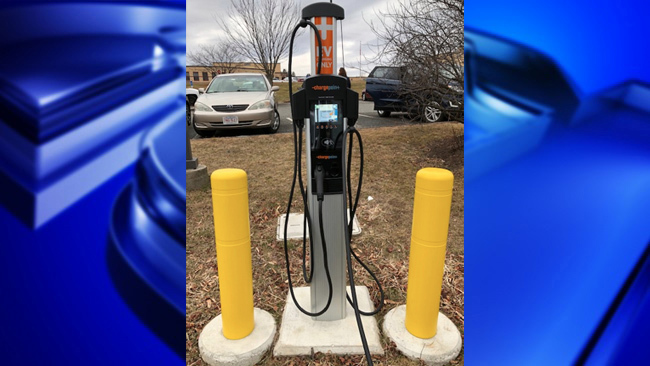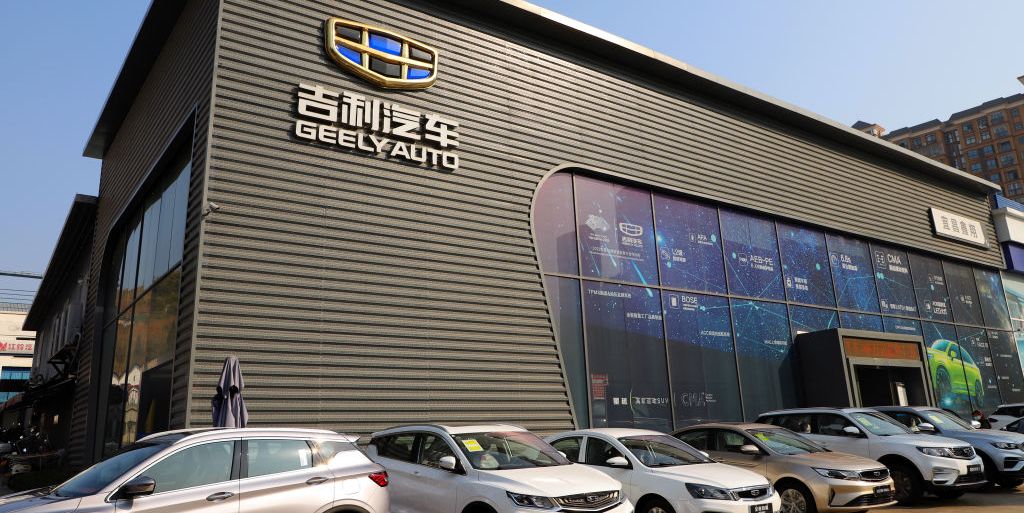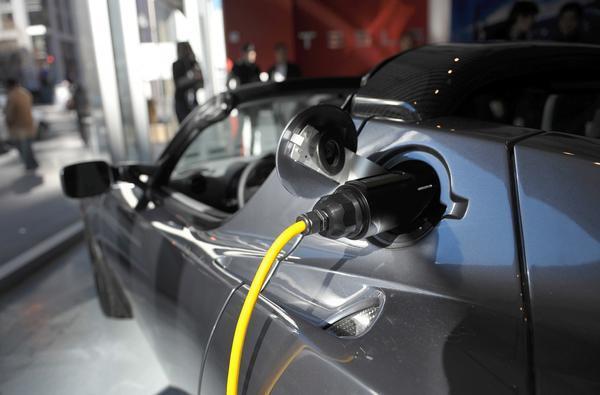Electric car charging stations popping up around Wisconsin Fox11online.com
Electric Vehicles
Legislators in 11 states push for more fees on electric, hybrid vehicles
Steps are being taken at statehouses around the country to supplement transportation funding via electric and hybrid vehicles.
Popularity for such vehicles is expected to grow in the coming decades. As a result, state officials are taking steps to make sure they will be able to capture needed transportation revenue from owners of fuel-efficient vehicles.
About 30 states impose a special registration fee for plug-in electric and/or plug-in hybrid vehicles. Fees range from about $50 annually for plug-in hybrid vehicles in Iowa to $225 yearly for plug-in electric vehicles in Washington.
Below is a rundown of notable efforts in statehouses to raise more revenue via alternative fuel vehicles.
Alaska
Alaska’s House Transportation Committee has taken the first step toward approval of a notable transportation funding bill.
The main component of the bill from Rep. Andy Josephson, D-Anchorage, is a provision to double the 8-cent excise tax on gas and diesel purchases to 16 cents.
Also included in the bill is a provision to increase in biennial registrations for electric vehicles from $100 to $200. Hybrid vehicle registrations would increase from $100 to $150.
The Alaska Department of Revenue estimates the fuel tax increase would raise $33 million annually for transportation work. Increased fees on alternative fuel vehicles initially would raise about $100,000 yearly.
HB104 awaits further consideration in the committee.
Arizona
One Arizona bill halfway through the statehouse would tap alternative-fuel vehicles as a new funding source.
The Senate-approved bill would impose an annual tax on electric vehicles and vehicles that use a combination of fuel and electric power, or hybrids.
SB1108 calls for collecting an annual $110 flat fee on electric vehicles. Hybrid vehicle owners would pay $44 per year.
A fiscal note attached to the bill shows the new fees are estimated to raise about $9 million each year.
The bill, SB1108, awaits assignment to committee in the House.
Arkansas
A new law in Arkansas reverses course on the state’s pursuit of additional revenue via alternative fuel vehicles.
In 2019, the state authorized an additional registration and annual renewal fee of $100 to be collected from hybrid vehicle owners. An additional $200 fee was applied to electric vehicle registrations.
The registration and renewal fees for hybrid and electric vehicles were estimated to raise $1.9 million annually.
The Legislature approved a bill to reduce the additional registration fee and annual renewal fee for hybrid vehicles to $50. Gov. Asa Hutchinson has since signed SB225 into law.
Reduction of the annual fee is estimated by the state’s Department of Finance and Administration to reduce revenue by $1.1 million.
Florida
In Florida, the Senate Transportation Committee has approved a bill that calls for collecting more money from owners of electric and hybrid vehicles.
Sponsored by Sen. Jeff Brandes, R-St. Petersburg, SB140 would apply a $135 flat fee to license an electric vehicle up to 10,000 pounds. The rate would increase to $150 in 2025.
Affected vehicles weighing at least 10,000 pounds would include a $235 license fee. The fee would be raised to $250 in 2025.
Hybrid vehicle owners would be responsible for paying a $35 licensing fee. The amount would increase to $50 in 2025.
Revenue raised via the licensing fees would be deposited into the state’s Transportation Trust Fund.
Passage of the bill is contingent upon approval of a related bill from Brandes to setup a grant program.
The bill, SB138, would let state agencies and local governments apply for funds via the fees authorized in SB140. The revenue would be used to develop plans to add charging stations.
Both bills await further committee consideration.
Minnesota
A Minnesota bill introduced in the past week would increase surcharges on electric vehicles and hybrids.
Sponsored by Rep. John Petersburg, R-Waseca, the bill would increase the surcharge for electric vehicles from $75 to $229. A surcharge of $114.50 would be collected on hybrid vehicles.
Both fees would be tied to the state’s fuel tax.
Bill advocates say taking action to have electric vehicle owners contribute to the road fund like fuel-powered vehicle owners already do would help address concerns about regressive fuel taxes.
“Electric vehicles are heavier than their gas counterparts, and as long as they’re benefiting from state roads, they should be paying to maintain them, too,” Senate sponsor Jeff Howe of Rockville said in recent remarks.
HF2250 is in the House Transportation Finance and Policy Committee.
Montana
The Montana Senate Highways and Transportation Committee held a hearing last week on a House bill to tap electric vehicles to help cover costs for road upkeep and construction. The fee would not apply to hybrid vehicles.
Sponsored by Rep. Denley Loge, R-St. Regis, the bill would implement a new annual fee on all electric vehicles registered in the state. Specifically, affected vehicles under 6,000 pounds would be charged $150. Affected vehicles between 6,000 pounds and 26,000 pounds would be charged $250. Larger electric trucks would pay $500 annually.
Loge says the annual cost would be cheaper than what fuel-powered vehicle owners pay for pump taxes.
“There is the same wear and tear of an electric car as there is of a gas-run vehicle or diesel-run vehicle,” Logue testified. “This just puts them in a bracket they can be paying for some of the road use the rest of us are paying.”
A fiscal note attached to the bill reports there are 996 electric vehicles in the state. The number of such vehicles is expected to grow annually.
The proposed fees are estimated to raise $241,350 by fiscal year 2025.
The committee did not vote on HB188. If approved there, the bill would head to the full Senate. House lawmakers have already approved it.
North Dakota
On Monday, March 22, a North Dakota House-approved bill covering transportation revenue received its first consideration on the Senate side.
The Senate Finance and Taxation Committee held a hearing to discuss a bill to increase the state’s fuel tax rate. Owners of alternative fuel vehicles would also pay more.
The state now collects 23 cents per gallon on diesel and gas sold.
HB1464 would increase the excise rate by 3 cents to 26 cents. Additionally, the $120 and $50 road use fees for electric and hybrid vehicles would be increased to $200 and $100 respectively.
The committee did not vote on the bill.
Oklahoma
The Oklahoma Senate has approved a bill that focuses on collecting additional revenue from electric and hybrid vehicles.
Bill sponsors say the effort is intended to ensure all vehicles using Oklahoma highways are contributing to the cost of maintaining the systems in a “fair and equitable manner.”
HB2234 would enact a 3-cent per kilowatt hour tax at public for-profit charging stations. Specifically, a vehicle with a 50kw battery could fully charge for a tax of $1.75 or less.
In-state electric vehicle owners would be eligible for a tax credit up to the amount of their annual registration for fees paid at public charging stations.
Advocates say the tax would let the state collect revenue from out-of-state vehicles.
Additionally, an annual vehicle registration fee would be applied for electric vehicles. A bill summary states the fee would vary based on vehicle model, ranging from $110 to $1,687.
“While some states have passed laws that are punitive to the electric vehicle industry, the intent of this legislation is simply equity,” bill sponsors said in a recent joint statement.
The bill has moved to the House Finance Committee.
South Dakota
A new law in South Dakota enacts an annual flat-rate registration fee on many electric vehicle owners.
Previously HB1053, the new law charges affected noncommercial vehicle owners $50 annually for registration.
An estimated $8,000 annually will be directed to the state’s road maintenance fund.
Sen. Mary Duval, R-Pierre, said on the Senate floor it is time for owners of electric vehicles to contribute to repairs to state roads and bridges.
“This is the right thing to do now to make sure we have good roads and bridges,” Duval said.
Texas
One Texas bill would impose an additional fee for the registration and renewed registration of electric and hybrid vehicles.
Sponsored by Rep. Ken King, R-Hemphill, HB427 would collect an additional fee of $200 for electric vehicles and $100 for vehicles that use a combination of fuel and electric power, or hybrid vehicles.
King introduced an identical bill two years ago. The effort received a public hearing but the House Transportation Committee failed to advance the bill.
Collecting the additional fees is estimated to raise $55 million over the next two years for the state’s highway fund, according to a fiscal note.
This year’s bill is in the House Transportation Committee.
West Virginia
Two West Virginia bills would reverse course on the state’s collection of fees from owners of electric and hybrid vehicles.
A 2017 state law authorized the collection of annual fees totaling $200 on electric vehicles and $100 on hybrid vehicles.
HB2223 and SB94 call for ending collection of the fees.
Supporters say the change is needed to avoid penalizing residents who are encouraged to purchase fuel alternative vehicles.
The bills are in committee. LL
More state trends
Keith Goble, state legislative editor for Land Line Media, keeps track of many trends among statehouses across the U.S. Here are some recent articles by him.
COLUMN- Volkswagen powers up for the electric vehicle revolution: Andy Home
(The opinions expressed here are those of the author, a columnist for Reuters.)
* VW’s EV battery mix: https://tmsnrt.rs/2Pp4V0G
By Andy Home
LONDON, March 24 (Reuters) – Volkswagen CEO Herbert Diess is no Elon Musk but the German carmaker is following a path already traveled by Tesla as it gears up for the mass rollout of electric vehicles (EV).
Even last week’s “Power Day”, a two-hour streaming event at which Diess explained the company’s EV strategy, seemed a conscious nod to Tesla’s “Battery Day” last September.
Like Tesla, Volkswagen has decided to take control of its own battery destiny by constructing six European gigafactories with collective annual capacity of 240 gigawatt hours (GWh) over the next decade. The announcement sent its shares into a Tesla-style frenzy.
Batteries are, quite literally, the driver of the e-mobility revolution and Volkswagen has clear ideas about what it wants and at what price as it prepares to transition from the internal combustion engine (ICE).
Its roadmap has major implications for battery metals such as lithium, cobalt, nickel and manganese.
DRIVING DOWN THE PRICE
Core to Volkswagen’s EV strategy is the need to bring EV prices down to parity with conventional ICE vehicles and to accelerate charging times.
Part of this challenge will be met by using a unified prismatic cell across 80% of the group’s models. The balance 20%, designated “specific solutions”, will use bespoke battery design for high-end brands such as Audi and Porsche, where performance not price counts.
Even more significant in driving down costs will be the battery chemistries deployed within that standardised cell.
Volkswagen wants to cut by half the price of a low-end “entry-level” car and to do so it will use lithium-iron-phosphate (LFP) cathodes.
A couple of years ago this relatively dated battery chemistry seemed set to be superseded by more energy-efficient combinations but significant technical improvements have seen a resurgence in LFP usage, led again by Tesla, which has been installing it in its Chinese Model 3 sedans.
Volkswagen will do the same for the same reason.
LFP batteries don’t use scarce and high-priced nickel or cobalt but rather plentiful and cheap iron and phosphate. With raw materials now accounting for the largest part of a battery’s cost, switching metallic cathode inputs is the single most powerful cost lever.
IN THE BATTERY MIX
And one that Volkswagen also intends to pull for its mass-market, mid-level range of vehicles with an ambition to move to high-manganese (HM) batteries.
This would represent a significant shift from the nickel-cobalt-manganese (NCM) chemistry that has become the cathode of choice for any EV that needs a bit more performance oomph.
But high-manganese batteries also use no cobalt and a lot less nickel and a chemistry such as lithium-nickel-manganese-oxide (LNMO) reduces by 47% the cathode costs per kilowatt-hour relative to NCM batteries with high nickel ratios, according to analysts at Roskill. (“VW Power Day”, March 2021).
“High-manganese cathodes are considered one of the strongest candidates for the next generation of lithium-ion batteries because of their cost advantage, cobalt-free nature, and strong electrochemical performance,” Roskill says.
But they’re not commercially viable yet. Nor are the solid-state lithium batteries with a 12-minute charging time Volkswagen is targeting as its chemical end-game through its investment in QuantumScape.
In the interim, some form of NCM will be used, as it will be for the higher-end marques with prestige pricing levels.
But the direction of travel is clear. Volkswagen wants to de-risk its battery inputs by minimising usage of cobalt and nickel.
Both are high-priced, volatile markets with supply-chain problems, a dependence on the Democratic Republic of Congo in the case of cobalt and too little battery-grade material in the case of nickel.
Roskill estimates Volkswagen’s group usage of nickel and cobalt surged by 1,198% and 816% to 7,047 tonnes and 1,868 tonnes respectively between 2018 and 2020.
Extrapolate that usage growth forwards as Volkswagen powers up its EV offering and you can start to see why the company is setting its store on a high-manganese battery solution.
However, the overriding message is that no single battery technology is going to dominate the EV space. Volkswagen, like Tesla, is going to deploy different chemistries for different vehicles depending on price.
TAKING CONTROL?
Volkswagen’s vision is to “take control of its own battery supply”, according to Simon Moores, managing director of Benchmark Mineral Intelligence, speaking on the company’s streamed analysis of the automotive giant’s EV plans.
Volkswagen’s ambitious plan to build six European gigafactories by 2030 sets the company up to be a major battery player in its own right, the incumbent auto giant becoming battery disruptor.
For now, Volkswagen’s massive investment in EVs – 35 billion euros ($41.7 billion) by 2025 – is centred on cell technology and further downstream in the form of charging infrastructure and recycling of spent batteries.
The company, notes Roskill, is “parking its capital in segments closest to its current manufacturing business model and where it feels it can contribute the most value.”
Tesla has passed this stage and is moving further upstream, extending its reach into cathode raw materials sectors.
The company is poised to get involved in lithium hydroxide production based on an ore supply deal with Australian miner Piedmont Lithium.
It has a “technical and industrial partnership” with the new owners of Vale’s New Caledonian nickel operations.
Elon Musk has reached the conclusion that battery capacity does not ensure supply-chain security if raw material markets are heading into periods of supply scarcity.
Volkswagen didn’t say much at all about its upstream metals requirements, particularly lithium, which is core to whatever battery chemistry is deployed.
The lithium supply chain is audibly creaking at the moment as producers switch from cost-cutting to expansion mode, a collective turnaround not helped by notoriously long lead times in commissioning processing plants to battery-quality standards.
Battery makers, and of course Tesla, have already been carving out future supply deals with lithium producers. An already competitive market landscape looks a lot more congested with Volkswagen powering up battery capacity.
At the moment Volkswagen seems to be placing its faith in the potential for partnership with raw materials producers. Tesla has decided faith is not enough.
There’s a strong prospect, as Benchmark Minerals’ Moores pointed out, that carmakers’ battery and power days will be followed by metals and minerals days.
(Editing by Jason Neely)
Why is Electric Vehicle Performance So Important?
Unless you’re a “car guy,” it might not seem too important to have a car that could reach 200 miles per hour or accelerate to 60 miles per hour in less than three seconds. But that’s exactly what some of the top electric vehicles are capable of, and in this Fool Live segment, recorded on March 15, Fool.com contributor and auto enthusiast Matt Frankel talks with host Jason Moser about why the performance statistics of electric vehicles in particular are so impressive.
Jason Moser: I’m not trying to discredit. I’m just asking, why it matters? I don’t care if my car can get from 0-60 in three seconds or four seconds. For me, personally, it doesn’t matter. So I’m just asking a car guy why does it matter. I just don’t know.
Matt Frankel: My better answer, especially for the EV market, is historically, EVs have been around in some form or another for about 20 years when you consider hybrids, plug-ins, things like that. Historically speaking, the better efficiency got, the worse performance got. The big proposition with Tesla (NASDAQ:TSLA) is, here is gasoline car performance from an electric car. That’s what really catapulted Tesla into the stratosphere in terms of mass market adoption. If Lucid is saying, we could do what Tesla did even better in so many words. I’m a car guy, I love fast performance. I love stepping on the gas a little more than I should when I’m driving in my car. So I can’t really speak to everybody why they care about 0-60 and things like that. But from an electric car standpoint, the fact that you can get this 500 mile range on something you can charge in your garage without sacrificing performance. To put it in context, 2.5 seconds is what a $500,000 Lamborghini would do. Getting that level of performance from something you can plug in your garage, is really why that statistic is so important.
Moser: Yeah, well that makes more sense to me. I mean, that I understand, I do get that, so it’s an indicator of performance. It is a metric worth knowing. I get that. Thank you for explaining that because I was always a little bit confounded by that. Listen, EVs are the way the world needs to go. It’s the way the world is going. It’s just going to be a matter of time. I think that it’s great to see companies like Lucid getting a chance to get out there. For all of the great things that Tesla has done, Tesla can’t give every one in the world an EV. It doesn’t have that type of production capability. So we need more EV companies. It sounds like that’s what we’re getting. It’s nice to see the incumbents in the automobile industry also really starting to focus on this part of the market as well. I’ve seen a lot of Ford (NYSE:F) and GM (NYSE:GM) commercials really focusing on it as well. GM recently changed their logo to really be more in line with that type of mentality, that type of future. It’s absolutely an exciting space, one that I think should continue to develop over the coming years. Thanks to companies like Lucid, it’s just going to bring more and more options to consumers it sounds like.
This article represents the opinion of the writer, who may disagree with the “official” recommendation position of a Motley Fool premium advisory service. We’re motley! Questioning an investing thesis — even one of our own — helps us all think critically about investing and make decisions that help us become smarter, happier, and richer.
Biden Administration Charts Aggressive Course Toward Electric Vehicle Adoption – Government, Public Sector
United States:
Biden Administration Charts Aggressive Course Toward Electric Vehicle Adoption
To print this article, all you need is to be registered or login on Mondaq.com.
President Biden campaigned on a platform that included a
commitment to take dramatic action to address climate change;
within a week of taking office in January 2021, he issued
an
executive order establishing a task force to develop a
plan to create a carbon pollution-free electricity sector no later
than 2035 and to transition all federal, state, local, and tribal
government fleets, including vehicles of the United States Postal
Service, to clean and zero emission vehicles. The executive order
set an aggressive schedule, requiring the task force to report
within 90 days a plan for achieving these goals. Then, in early
March, the White House
announced a goal of building 500,000 electric vehicle
charging stations to “most effectively accelerate and scale a
national network of EV charging stations.” While President
Biden’s goals are undoubtedly ambitious, any plans to achieve
those goals will be bounded by practical considerations of electric
vehicle (EV) ownership and operation, including the speed at which
consumers adopt EVs and create a market for the infrastructure to
support their use.
President Biden’s ambitious program to promote the use of
EVs dovetail with state mandates to accelerate the adoption of EVs
by consumers. Last September, California’s governor signed an
executive order banning the sale of new combustion engine cars and
trucks after 2035. Massachusetts followed suit soon thereafter with
a similar mandate that will ban new internal combustion engine
vehicle sales in the state by 2035. Many motor vehicle
manufacturers are quickly moving their product lines in a direction
to meet these mandates. For example, GM has committed to
offer
30 new EVs by 2025. In the same timeframe, Volvo plans to
have
50% of its new car sales be EVs, and 100% by 2030. Kia
plans to have
11 EVs in its product portfolio by 2025. And while California
and Massachusetts have opted to use the proverbial stick to compel
automakers to manufacture EVs and force residents to buy
them,
45 states are using the carrot of economic incentives to
encourage consumers to adopt EVs voluntarily.
Whether consumers are forced or cajoled into buying EVs, the
realities are these. Only about
2% of cars sold in the United States today are EVs. With
respect to EV charging stations, there are currently only
about
27,000 public charging station locations nationwide;
conversely, there are roughly
115,000 gas stations in the United States
today. Public-private partnerships (“P3s”) are a
likely means of developing charging infrastructure across America.
For example, the New York State Throughway Authority procured a
33-year P3 to modernize, operate and maintain 27 rest areas, and
the Authority’s private partner plans to install and
maintain charging stations at each of these rest areas.
The
maximum range of a 2020 Tesla Model S is 402 miles, not
dissimilar to the range of an internal combustion engine vehicle
with a full tank of gas, but it can take up to
10 hours to fully charge a Model S using a home installed
charger. Even Level 3 fast chargers using direct current (DC) plugs
require 20-30 minutes to charge an EV battery to 80% capacity. Put
simply, owning and operating an EV will require more planning than
American consumers are accustomed to, and the widespread acceptance
of EVs will require a change in mindset, and infrastructure to go
with it, that cannot simply be mandated or bought.
The content of this article is intended to provide a general
guide to the subject matter. Specialist advice should be sought
about your specific circumstances.
POPULAR ARTICLES ON: Government, Public Sector from United States
BCUC Approves Interim Rates for BC Hydro Public Electric Vehicle Fast Charging Stations
VANCOUVER, BC, March 23, 2021 /CNW/ – Today, by Order G-89-21, the British Columbia Utilities Commission (BCUC) granted interim approval of British Columbia Hydro and Power Authority’s (BC Hydro) electric vehicle (EV) rates for its public EV fast charging service stations across British Columbia (BC). The following interim rates will take effect on May 1, 2021 pending review of the application and a final decision on permanent rates by the BCUC:
-
$0.12 per minute for EV fast charging service at 25 kilowatt (kW) stations;
-
$0.21 per minute for EV fast charging service at 50 kW stations; and
-
$0.27 per minute for EV fast charging service at 100 kW stations.
The BCUC will determine how any difference between interim and permanent rates will be refunded to or collected from customers or a class or classes of customers when the BCUC makes its final decision.
The BCUC is conducting an open and transparent public proceeding to review BC Hydro’s Public EV Fast Charging Service Rates application and set permanent rates. The proceeding includes an opportunity for public comment and participation through the methods outlined below.
-
Request intervener status: Persons who are directly or sufficiently affected by the BCUC’s decision or have relevant information or expertise, and who wish to actively participate in the proceeding, can request intervener status by Wednesday, April 14, 2021.
-
Submit a letter of comment: Members of the public can submit letters of comment to contribute views, opinions, and impact or potential impact, with respect to a matter before the BCUC, to the public record by Monday, May 17, 2021.
-
Register as an interested party: Interested parties can register online to receive updates on the proceeding.
More information about the proceeding can be found on the BC Hydro Public EV Fast Charging Service Rates Application proceeding page.
Background
In June 2019, the BCUC issued its Phase Two Report on the Regulation of EV Charging Services in BC, focusing on the role of “non-exempt public utilities” (e.g., BC Hydro and FortisBC Inc.) in the EV charging service market, how these entities might participate in this market and if their participation should be regulated. One of the BCUC’s recommendations to the BC government was that non-exempt public utilities should develop a separate rate and tariff (or a separate class of service) for EV charging service.
Sections 18(2) and 18(3) of the Clean Energy Act describes the BCUC’s role in the setting of rates related to prescribed undertakings. The Greenhouse Gas Reduction (Clean Energy) Regulation, as amended by Order in Council No. 339 in June 2020, establishes the prescribed undertaking criteria for EV charging stations.
About the BCUC
The BCUC is an independent regulatory body, responsible for regulating BC’s energy utilities, as well as its compulsory automobile insurance rates, and intra-provincial pipelines rates. The BCUC is also responsible for administering BC’s Fuel Price Transparency Act. It is the BCUC’s role to balance the interests of customers with the interests of the businesses it regulates. The BCUC carries out fair and transparent reviews of matters within its jurisdiction and considers public input where public interest is impacted.
CONTACT INFORMATION:
Krissy Van Loon
Manager, Communications
Phone: 604.660.4727
Email: Krissy.VanLoon@bcuc.com
SOURCE British Columbia Utilities Commission

View original content to download multimedia: http://www.newswire.ca/en/releases/archive/March2021/23/c1738.html
City Council Approves Contract for Electric Vehicle Charging Stations at Victory, Robinson Parks – Pasadena Now

The City Council on Monday approved a contract for the installation of electric vehicle charging stations at Victory and Robinson parks.
Under the contract, Sacramento-based Baran Electric will install two direct-current fast charging (DCFC) stations and 23 Level 2 chargers in Victory Park, and five DCFC and 20 Level 2 charging stations at Robinson Park, for a cost not exceeding $405,650.
Aside from the hardware, Baran Electric will provide associated maintenance services and user account management, revenue collection, monitoring, telemetry, and reporting services for three years, with two optional one-year extensions for up to a total of five years, a PWP report for the City Council showed.
Pasadena Water and Power has already procured the needed DCFC chargers from OneSource Distributors, in accordance with a contract that the City Council approved in July 2019 as the Marengo Charging Plaza was being constructed. This procurement was also in support of other future charging station projects.
This is the first time Baran Electric is entering into a contract with Pasadena. According to PWP, the contract will support the City Council’s strategic planning goals, the city’s Climate Action Plan, urban environmental accords, and the Pasadena General Plan in reducing greenhouse gas emissions. It also supports expanding sustainable mobility and land use, and the city’s commitment to a more sustainable community.
The contract is also in support of former Gov. Jerry Brown’s goal of installing 250,000 charging stations in the state by 2025 and his executive order to help accelerate the market to five million zero-emission vehicles on California’s roads by 2030, PWP said.
Funding for the contract will be addressed by using approximately $200,000 from the city’s existing Utility Undergrounding Fund and revenue derived from the Low Carbon Fuel Standard credits for the balance.
Agawam City Council considers resolution to charge electric vehicle owners at city charging stations
AGAWAM, Mass. (State House News Service) – Want to juice up your electric vehicle at one of the public charging stations in Agawam? It could soon cost you.
The Agawam City Council recently voted 9-1 to approve the first reading of a resolution that would charge electric vehicle owners 60 cents per kilowatt hour to use the city’s charging stations. Agawam has a total of seven such stations that are currently free to use, and officials had previously discussed a fee of $1 per kilowatt hour in order to offset the city’s subscription and upkeep costs.
Councilor Dino Mercadante said the reduction in the proposed rate was an attempt to encourage use of the stations without requiring taxpayers to subsidize their costs.
“You have to find that happy medium to allow the vehicles to start flourishing, to move in that direction, and then that will bring the demand rate down and make the bottom line more competitive,” he said.
Zero-emission vehicles, including electric cars and trucks, are a major part of the Baker administration’s greenhouse gas emissions reduction strategy.
Meeting the administration’s goal of reducing greenhouse gas emissions by at least 45 percent from 1990 levels by 2030 will “require that about 1 million of the 5.5 million [passenger vehicles] projected to be registered in the Commonwealth in 2030 be” zero-emission vehicles, the administration said in its 2050 decarbonization plan, which also calls for a requirement that all new cars and passenger trucks sold in Massachusetts be zero-emission vehicles starting in 2035.
The only councilor to vote against the resolution in Agawam was Mario Tedeschi, who said he believes the city should charge something to use the stations, but that the proposed rate is too high compared to residential electricity costs.
“Is it such a convenience that someone is going to pay two or three times more because the electricity is so much faster and so much more convenient at the dog park?” he said Monday.
Councilor Robert Rossi was absent for the vote. The Council will vote on a second reading of the resolution at its next meeting, at which point it will take effect if approved.
Geely Launches Zeekr EV Brand in China to Compete with Tesla

Barcroft MediaGetty Images
- Zhejiang Geely Holding Group, one of the biggest automakers in China and the owner of Volvo, is launching a new electric-vehicle brand named Zeekr.
- Zeekr is intended to compete in the premium-EV segment in China, particularly against Tesla.
- The Chinese market for electric vehicles has been booming in recent years and is anticipated to continue that trend.
The electric-vehicle market in China is quickly growing, and Geely is responding. The Zhejiang Geely Holding Group, one of China’s biggest automakers and the owner of Volvo, is launching a new electric-vehicle brand to stake its claim in the premium segment of the market. The brand, Zeekr, will take on Tesla’s increasingly dominant position among high-end EV buyers, and the company said its first product will go on sale later this year.
Reuters reported on the plans this week, detailing the brand’s aim to go after Tesla and to sell electric vehicles with a quality “like Mercedes-Benz,” according to Geely’s founder and chairman, Li Shufu. Zeekr will ride on the Sustainable Experience Architecture (SEA) platform that Geely unveiled last fall.
Other Geely brands, including Volvo, will also eventually ride on the SEA; this architecture is underpinned by a battery from Chinese battery-maker CATL. Last fall, Geely said that this battery will have a life span of two million kilometers, or roughly 1.2 million miles.
Similar to Tesla, Zeekr will open showrooms to sell its vehicles at a fixed price, according to Reuters. Geely said that Zeekr will initially only be for China, but the automaker will look elsewhere to sell the vehicles depending on demand.
The electric-vehicle market in China has become one of the biggest in the world, in part due to government subsidies and government investments in charging stations. It is projected that EV sales in China will reach 1.8 million this year, up 40 percent from last year, and by 2025 will reach six million vehicles, according to Xu Haidong, deputy chief engineer of China Association of Automobile Manufacturers.
The growth in the market has prompted many new entrants to vie for their own corner of the market, including the likes of Nio and Xpeng. Tesla built a factory in Shanghai in 2019 and now builds the Model 3 and Model Y there. With an estimated 140,000 China-made Model 3 sedans delivered last year, according to the South China Morning Post, that investment has begun to pay off.
This content is imported from {embed-name}. You may be able to find the same content in another format, or you may be able to find more information, at their web site.
This content is created and maintained by a third party, and imported onto this page to help users provide their email addresses. You may be able to find more information about this and similar content at piano.io
Panel OKs agreement to install electric vehicle chargers in Colorado state parks
GRAND JUNCTION — Rivian, a California-based electric vehicle manufacturer, plans to begin installing charging stations in Colorado state parks as early as July.
The Grand Junction Sentinel reports that the company will install at least two charging stations in up to 50 Colorado Parks and Wildlife locations, including state parks and recreation areas, under a sponsorship agreement authorized by the Colorado Parks and Wildlife Commission. The installations come at no cost to CPW.
Rivian will operate and maintain the charging stations for up to five years — and possibly up to 25 years with agreement renewals.
Corey Ershow, a Rivian public policy manager, told the CPW commission that the charging stations will add about 25 miles of driving range per hour of charging.
The project comes as Gov. Jared Polis’ administration seeks to reduce greenhouse gas emissions and advocates the growing use of electric vehicles along with creating charging networks around the state.
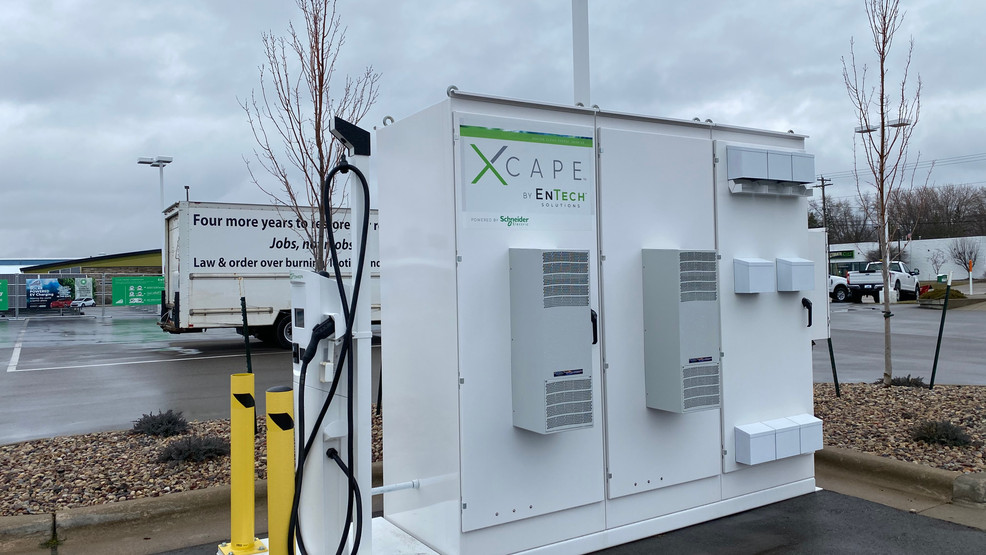
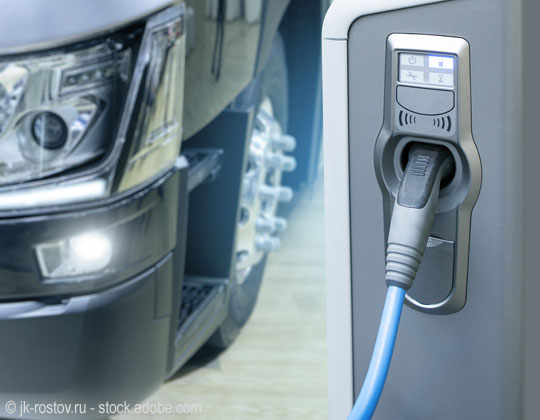

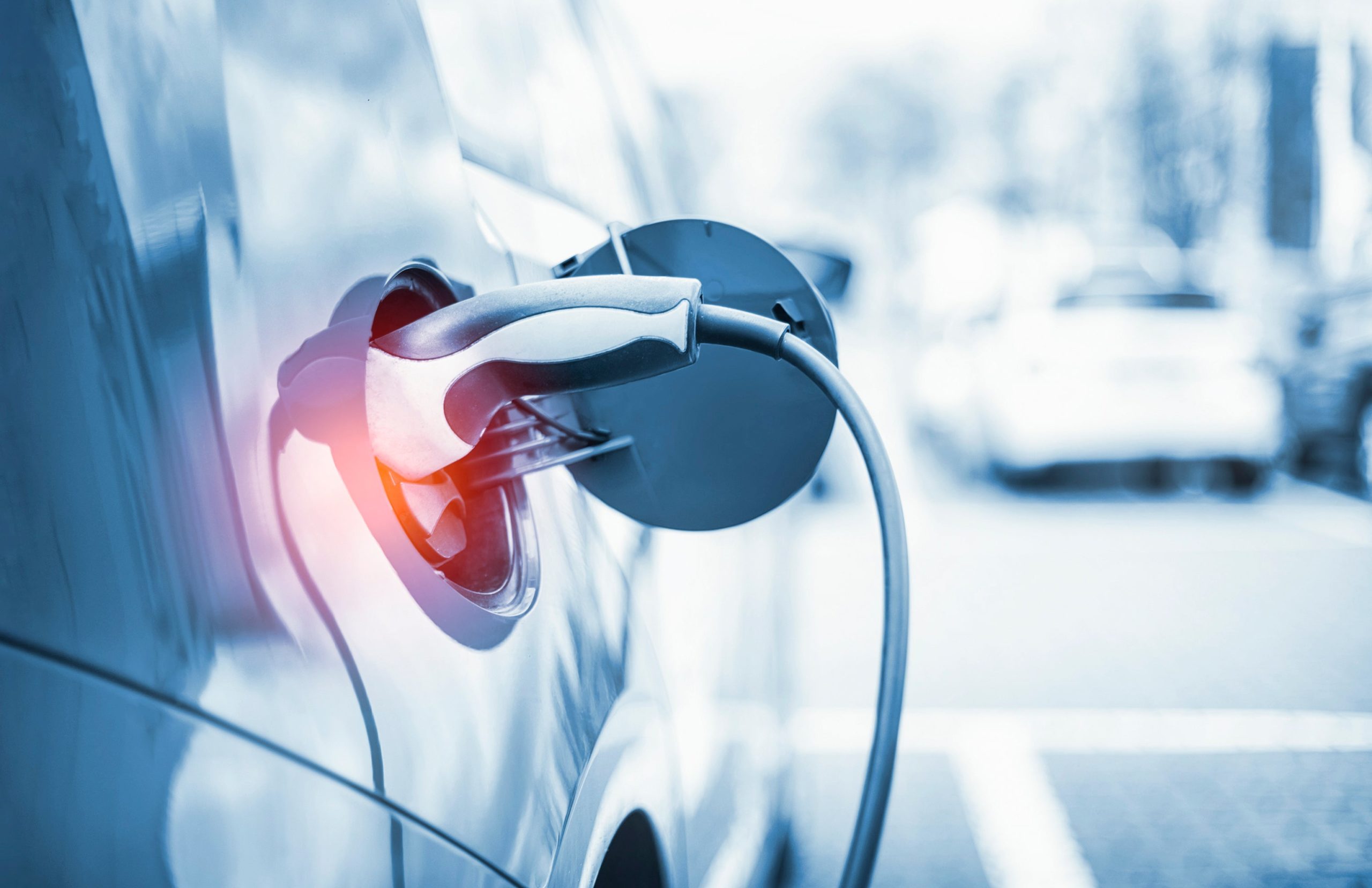




 Get our daily Pasadena newspaper in your email box. Free.
Get our daily Pasadena newspaper in your email box. Free.